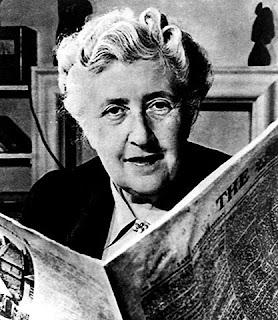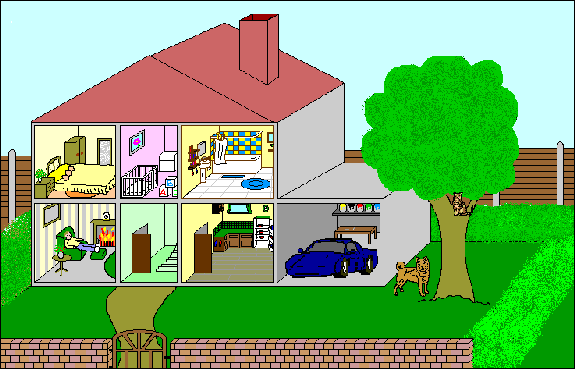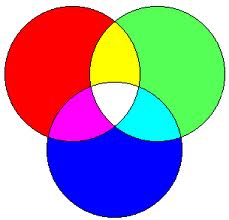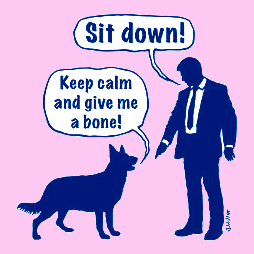2/28/2014
2/27/2014
2/26/2014
Past Simple - Game
In this game there are two sentences. One is in the present simple, the other in the past simple. Drag and drop letters to spell the past simple form of the verb.
Click HERE and play the game
Etiquetas:
Grammar,
Tenses - Past Simple
2/25/2014
A tribute to George Harrison

George Harrison,(25 February 1943 – 29 November 2001) was an English musician, singer and songwriter who achieved international fame as the lead guitarist of the Beatles. Although John Lennon and Paul McCartney were the band's primary songwriters, most of their albums included at least one Harrison composition, including "While My Guitar Gently Weeps", "Here Comes the Sun" and "Something", which became the Beatles' second-most-covered song.
Etiquetas:
Songs
Agatha Christie

Agatha Christie was born on 15th December 1890,in Devon. She is mainly remembered for her 79 detective novels but she also wrote romances under the name of Mary Westmacott. She was called the “Queen of Crime”. One billion copies of her books have been sold in English and another billion in 44 languages. She is the best-selling writer of all time.
In 1914 she married Colonel Archibald Christie and they had a daughter, Rosalind Hicks. During World War I she worked at a hospital . This job influenced her work: many of the murders in her books were carried out with poison.
After her mother’s death and her husband’s infidelity she was really depressed. So much so that, on 8th December 1926, Agatha disappeared for ten days. Her car was found abandoned. The police searched everywhere. There was an immediate uproar in the press, with speculation that Mrs Christie had been murdered or commited suicide.
Several days later, she was found in a health spa in the town of Harrogate, where she signed in under the name of Teresa Neele, the name of the woman with whom her husband had recently admitted having an affair. She claimed to have suffered amnesia due to a nervous breakdown but nobody believed this. They finally got divorced in 1928 and she married the archaeologist Max Mallowan, who was 14 years younger than her. Unluckily, it was not a happy marriage. He had many affairs, notably with Barbara Parker, whom he married in 1977, a year after Christie's death.
She was made a Dame in 1971. On 12 January 1976, she died at age 85, from natural causes. She was buried in the nearby St Mary's Churchyard in Cholsey.
Her characters
Miss Marple
She was a keen observer of human nature and a very intelligent woman. She solved mysteries through observation and a few polite questions. She was not a central character, she was rather peripheral. But there was always a good male character or policemen who were more involved in the narrative.
Hercule Poirot
Hercule Poirot appeared in 30 novels and 50 short stories. He was a Belgian detective who was always neatly dressed and had a big ego. He believed that crime was not solved on evidence alone. He thought that the greatest tool for crime solving was the mind, thanks to “the little grey cells”.
Agatha loved reading mysteries and she was influenced by Sir Arthur Conan Doyle.
The most famous fictional detectives are Poirot and Holmes. There is an interesting comparison in the following link:
http://www.freewebs.com/poirot/poirotvsholmes.htm
If you like Sherlock Holmes and Hercule Poirot, try this trivia: http://www.funtrivia.com/playquiz/quiz1779951462030.html
Agatha Christie's centenary, celebrated by David Suchet and Joan Hickson, 1990. Contains interviews with Dame Agatha's grandson, Mathew Prichard, author H.R.F. Keating and other authors and critics.
Etiquetas:
Biographies,
Reading
2/24/2014
Saving Tropical Rainforests (Upper-intermediate )

The video presents the campaign for saving rainforests started by Prince Charles.
Complete the task about the protection of tropical rainforest.
Click HERE
Etiquetas:
V- Environment,
Vocabulary
2/23/2014
Present Simple
 |
| I HAVE A CUP OF COFFEE EVERY DAY. |
Form:The verb has the form of the infinitive but adds an s for the third person singular.
The negative is formed using don’t or doesn’t + a main verb.
The interrogative is formed using do or does + subject + main verb.
AFFIRMATIVE
He/she/it works
I/you/we/they work
NEGATIVE
He/she/it doesn’t work
I/you/we/they don’t work
INTERROGATIVE
Does he/she/it work?
Do I/you/we/they work?
SHORT ANSWERS
Yes, he/she/it does
No, he/she/it doesn’t
Yes, I/you/we/they do
No, I /you/we/they don’t
Uses:Habitual actions.
She gets up at 6 o’clock.
Cats drink milk
Future reference (for timetables)
The train leaves at 7 tomorrow morning.
The concert begins at 9 next Saturday evening.
Adverbs and adverb phrases:
Often, usually, sometimes, on Tuesdays, never, ever, always, occasionally, every day,
Once a week, twice a week, three times a week, seldom.
Spelling:Ø Verbs ending in o, ss, ch, sh, x add es
Go --------- goes
Kiss ------- kisses
Watch ----- watches
Finish ----- finishes
Fax ------- faxes
Ø Verbs ending in consonant + y change the y into i and add es
Study ------ studies
Ø Verbs ending in vowel + y only add an s.
Play -------- plays
Etiquetas:
Grammar,
Tenses - Simple Present
Present Perfect - Exercises
Exercise 1 - have / has
Exercise 2
Exercise 3
Exercise 4
Exercise 5
Exercise 6
Exercise 7 Short answers
Exercise 8 Put the sentences in order
Exercise 9
Exercise 10 Already
Exercise 11
Exercise 12 Affirmative- -Negative - Interrogative
Exercise 13
Exercise 14 How long...?
Exercise 15 Yes- No Questions
Exercise 16 Negative
Exercise 19 Just
Exercise 20 Irregular Participle - Crossword
Exercise 21 Irregular Participle - Crossword
Exercise 22 Irregular Participle - Crossword
Exercise 23 Irregular Participle - Crossword
Exercise 24 Ever
Exercise 25 Ever
Exercise 26 For / Since
Exercise 27 For / Since
Exercise 28 For / Since
Exercise 29 For / Since
Exercise 30 For / Since
Exercise 31 Already / Yet
Exercise 32 Time Expressions
Exercise 33 Already / Yet
Exercise 34 Just / Already / Yet
Exercise 35 Time Expressions
Etiquetas:
Grammar,
Tenses - Present Perfect
Present Perfect Simple

Form:It is formed with have / has + the past participle.
Affirmative:
He / she / it has walked in the park.
He / she / it has walked in the park.
Negative:
He / she / it hasn’t walked in the park.
I / you / we / they haven’t walked in the park.
Questions:
Has he / she / it walked in the park.
Have I / you / we / they walked in the park.
Short answers:
Yes, he / she / it has.
Yes, I / you / we / they have.
No, he / she / it hasn’t.
No, I / you / we / they haven’t.
When do we use the present perfect simple?
1) For an action which happened at an indefinite time in the past.
They have bought a new car.
2) For an action in the past with a result now.
He has cleaned his shoes. (= His shoes are clean now.)
3) For a period of time which continues from the past until now.
We use ever in questions and never in negative sentences.
Have you ever been to Italy?
Has she ever eaten caviar?
They have never ridden a horse.
She has never been to France.
4) With just. For an action that have recently finished and you can see the result in the present.
Note: we use just between the auxiliary verb and the main verb.
She has just painted the door. (The paint on the door is still wet.)
5) With for and since.
Note:
For + a period of time
For two years
For ages
For ten minutes
For a long time
Since + a point of timeSince 9 o’clock
Since Easter
Since March
Since he left school
Since 1999
I have known them for 5 years.
She has been a teacher since 2004.
6) With already and yet
Already is used in affirmative sentences between the auxiliary and the main verb
I have already cleaned the house.
Yet is used in negative sentences and questions and it goes at the end of the sentence.
She hasn’t done the shopping yet.
Have you written the letters yet?
Etiquetas:
Grammar,
Tenses - Present Perfect
Past Simple

Form:
The past simple of regular verbs add ed to the infinitive
Work ----- worked
Play ------- played
Irregular don’t form the past tense by adding ed, so you will have to learn them.
Click HERE and you’ll find a list of irregular verbs
The negative is formed with didn’t and the infinitive.
The interrogative is formed with did + subject + infinitive
Use:
It is used to talk about past actions when the time is given.
Affirmative:
Anne phoned me yesterday.
Alex swam in the river last week.
Negative:
She didn’t read the e-mail last night.
Interrogative:
Did she talk to Ben yesterday?
Short answers:
Yes, she did.
No, she didn’t
Time Expressions:
Yesterday, ….ago, last….., in 1998.
Spelling:
Verbs ending in consonant + y, change the y into i and add ed
Study ------ studied
Carry ------ carried
But: Obey ------ obeyed
Play ------ played
Verbs ending en e only take a d
Love ------- loved
Like ------- liked
Verbs of one syllable with a vowel between two consonants, double the last consonant.
Stop ------ stopped
Verbs ending in one l. double the l and add ed
Travel ----- travelled.
Etiquetas:
Grammar,
Tenses - Past Simple
These Dreams
This song was dedicated (on the album) to Nancy Wilson's good friend Sharon Hess, who died of leukemia shortly before the song was made. The lyrics of the song describe the fantasy world a person enters when faced with a difficult situation in real life.
Spare a little candle
Save some light for me
figures up ahead
Moving in the trees
White skin in linen
Perfume on my wrist
And the full moon that hangs over
these dreams in the mist
These dreams go on when I close my eyes
Every second of the night I live another life
These dreams that sleep when it's cold outside
Every moment I'm awake the further I'm away
Is it cloak 'n dagger
Could it be spring or fall
I walk without a cut
Through a stained glass wall
Weaker in my eyesight
The candle in my grip
And words that have no form
Are falling from my lips
These dreams go on when I close my eyes
Every second of the night I live another life
These dreams that sleep when it's cold outside
Every moment I'm awake the further I'm away
There's something out there
I can't resist
I need to hide away from the pain
There's something out there
I can't resist
The sweetest song is silence
That I've ever heard
Funny how your feet
In dreams never touch the earth
In a wood full of princes
Freedom is a kiss
But the prince hides his face
From dreams in the mist
These dreams go on when I close my eyes
Every second of the night I live another life
These dreams that sleep when it's cold outside
Every moment I'm awake the further I'm away
These dreams go on when I close my eyes
Every second of the night I live another life
These dreams that sleep when it's cold outside
Every moment I'm awake the further I'm away
Spare a little candle
Save some light for me
figures up ahead
Moving in the trees
White skin in linen
Perfume on my wrist
And the full moon that hangs over
these dreams in the mist
These dreams go on when I close my eyes
Every second of the night I live another life
These dreams that sleep when it's cold outside
Every moment I'm awake the further I'm away
Is it cloak 'n dagger
Could it be spring or fall
I walk without a cut
Through a stained glass wall
Weaker in my eyesight
The candle in my grip
And words that have no form
Are falling from my lips
These dreams go on when I close my eyes
Every second of the night I live another life
These dreams that sleep when it's cold outside
Every moment I'm awake the further I'm away
There's something out there
I can't resist
I need to hide away from the pain
There's something out there
I can't resist
The sweetest song is silence
That I've ever heard
Funny how your feet
In dreams never touch the earth
In a wood full of princes
Freedom is a kiss
But the prince hides his face
From dreams in the mist
These dreams go on when I close my eyes
Every second of the night I live another life
These dreams that sleep when it's cold outside
Every moment I'm awake the further I'm away
These dreams go on when I close my eyes
Every second of the night I live another life
These dreams that sleep when it's cold outside
Every moment I'm awake the further I'm away
Etiquetas:
Songs
2/22/2014
Poverty
"Saltwater" is a 1991 song performed by English singer, songwriter, and musician Julian Lennon. It was written by Mark Spiro, Leslie Spiro and Julian Lennon.
What problems are mentioned in the song?
What problems do poor people have?
Does poverty cause crime?
Will there always be poverty in the world?
Have you ever helped a homeless person? How?
Do you think the government should create jobs for the homeless, instead of just giving them money?
How can poverty be ended?
Aristotle said: "Poverty is the parent of revolution and crime." What do you think?
What problems are mentioned in the song?
What problems do poor people have?
Does poverty cause crime?
Will there always be poverty in the world?
Have you ever helped a homeless person? How?
Do you think the government should create jobs for the homeless, instead of just giving them money?
How can poverty be ended?
Aristotle said: "Poverty is the parent of revolution and crime." What do you think?
Etiquetas:
Listening,
S- Poverty,
Songs,
Speaking
Reported Speech
More exercises:
Statements:
Exercise 1
Exercise 2
Exercise 3
Exercise 4
Questions:
Exercise 1
Exercise 2
Exercise 3
Exercise 4
Etiquetas:
Grammar,
Reported Speech
Reported Speech. Other useful introductory verbs.
“You must do your homework.”
He insisted on my doing my homework.
“I didn’t break the mirror.”
He denied that he had broken a mirror.
“Don’t go near the water!”
He warned me not to go near the water.
“What a beautiful dog!”
He exclaimed that it was a beautiful dog.
“Would you like to go dancing?”
He invited her to go dancing.
“Merry Christmas”
He wished me a merry Christmas.
“Congratulations!”
He congratulated me.
“Don’t forget to call Jane!”
She reminded me to call Jane.
“Welcome!”
He welcomed her.
“Thank you!”
She thanked me.
He insisted on my doing my homework.
“I didn’t break the mirror.”
He denied that he had broken a mirror.
“Don’t go near the water!”
He warned me not to go near the water.
“What a beautiful dog!”
He exclaimed that it was a beautiful dog.
“Would you like to go dancing?”
He invited her to go dancing.
“Merry Christmas”
He wished me a merry Christmas.
“Congratulations!”
He congratulated me.
“Don’t forget to call Jane!”
She reminded me to call Jane.
“Welcome!”
He welcomed her.
“Thank you!”
She thanked me.
Etiquetas:
Grammar,
Reported Speech
Reported Speech. Say and Tell.
Say + (that)......
Say + to sb + (that).......
Tell + sb + (that)......
“I’m coming.”
He said (that) he was coming.
He said to me (that) he was coming.
He told me (that) he was coming.
Etiquetas:
Grammar,
Reported Speech
Reported Speech. Suggestions

When we report suggestions, we use:
Suggest + that + sb should...
Suggest + ing
“Why don’t we go to the cinema?”
“How about going to the cinema?”
“Shall we go to the cinema?”
“Let’s go to the cinema.”
He suggested that we should go to the cinema.
He suggested going to the cinema.
Etiquetas:
Grammar,
Reported Speech
Reported Speech. Requests.
When we report a request, we use:
Ask / beg + sb + (not) to infinitive.
“Open the door, please.”
She asked me to open the door.
“Please, don’t tell her the truth.”
She begged Dave not to tell her the truth.
Etiquetas:
Grammar,
Reported Speech
Reported Speech. Commands
When we report commands, we use:
Tell / order + sb + (not) to infinitve.
“Don’t eat in class”
He told me / ordered me not to eat in class.
Come here!
He told me / ordered me to go there.
Etiquetas:
Grammar,
Reported Speech
Reported Speech. Questions
* Reported questions are introduced with verbs such as; ask, want to know, wonder.
* The verb changes to the affirmative form.
* The question mark (?) is omitted.
* In wh-questions, the question word is repeated in the indirect question.
“Where does she go on Mondays?”
Craig asked me where she went on Mondays.
* When the question begins with an auxiliary verb or a modal verb, the indirect question begisn with if or whether.
“Do you want a book?”
She asked me if / whether I wanted a book.
* The verb changes to the affirmative form.
* The question mark (?) is omitted.
* In wh-questions, the question word is repeated in the indirect question.
“Where does she go on Mondays?”
Craig asked me where she went on Mondays.
* When the question begins with an auxiliary verb or a modal verb, the indirect question begisn with if or whether.
“Do you want a book?”
She asked me if / whether I wanted a book.
Etiquetas:
Grammar,
Reported Speech
Reported Speech. Conditional Sentences
In conditional sentences type 1, we change the tenses.
“If I have time, I will talk to her.”
Sam said (that) if he had time, he would talk to her.
Conditional sentences type2 and 3 remain unchanged.
“If I did my homework, my teacher wouldn’t be angry with me.”
He said that if he did his homework, his teacher wouldn’t be angry with him.
“If I had been more careful, I wouldn’t have made mistakes.”
He said that if he had been more careful, he wouldn’t have made mistakes.
Etiquetas:
Grammar,
Reported Speech
Reported Speech

Tom: “ I’m happy”
He says he is happy.
He said he was happy.
When the introductory verb (say, tell) is in the present, we can report what people say without changing the tense.
When the introductory verb is in the past, the verbs have to be changed into a corresponding past tense.
Etiquetas:
Grammar,
Reported Speech
2/21/2014
Suscribirse a:
Entradas (Atom)

































